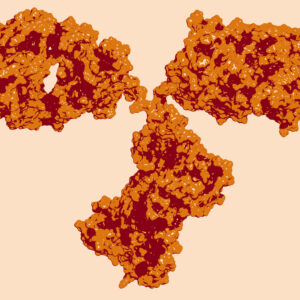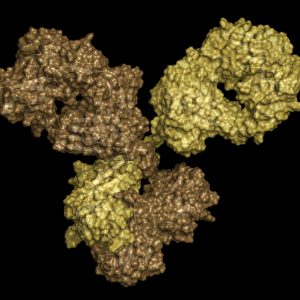Ebola
Ebola virus causes a viral haemorrhagic fever in humans and other primates. The disease has a high mortality rate, killing between 25-90% of those infected, with an average mortality rate of 50%. Since a significant outbreak in West Africa, in 2014/15, there have been further sporadic outbreaks, leading to continued concern about re-emergence.
The Native Antigen Company offer a range of recombinant Ebola proteins and antibodies to support research into this disease.
Ebola Background
Ebola virus disease (EVD) is a severe illness caused by several species of Ebolavirus (EBOV), of the family Filoviridae. Prior to 2007, four species of EBOV had been identified, with two (Zaire ebolavirus and Sudan ebolavirus) having caused large outbreaks in humans. The presence of a fifth EBOV species, Bundibugyo ebolavirus (BDBV) was identified after an outbreak of EVD in the Bundibugyo district of western Uganda in 2007. Outbreaks of EVD are associated with person-to-person transmission after the virus is introduced to human populations from its zoonotic reservoir. During outbreaks, the virus is commonly transmitted through direct contact with infected persons or their bodily fluids. The onset of EVD is associated with nonspecific clinical symptoms, including fever, myalgia, headache, abdominal pain, nausea, vomiting, and diarrhoea. In the later stages of disease, overt haemorrhage has been reported in up to 50% of cases.
The Zaire subtype of the EBOV family is currently the most significant in relation to outbreaks of disease in humans. This subtype was responsible for the largest ever outbreak of EVD, which started in West Africa in 2014 and was finally declared over only in early 2016.
References
- Adam MacNeil et al (2010). Proportion of Deaths and Clinical Features in Bundibugyo Ebola Virus Infection, Uganda. Emerg Infect Dis. 16(12): 1969–1972.
Ebola Antigens
The Native Antigen Company supply highly purified viral antigens, developed using our proprietary mammalian expression system to support researchers working with EBOV. Our range includes envelope glycoproteins from both Zaire and Bundibugyo strains and Ebola VLPs, which contain nucleoprotein, glycoprotein and VP40 antigens.
Ebola Antibodies
To complement our range of Ebola virus antigens. we are pleased to offer a range of monoclonal and polyclonal antibodies, specific to Ebola virus proteins. These include antibodies that are specific to Ebola nucleoprotein and VP40 antigens.
Questions?
Check out our FAQ section for answers to the most frequently asked questions about our website and company.





